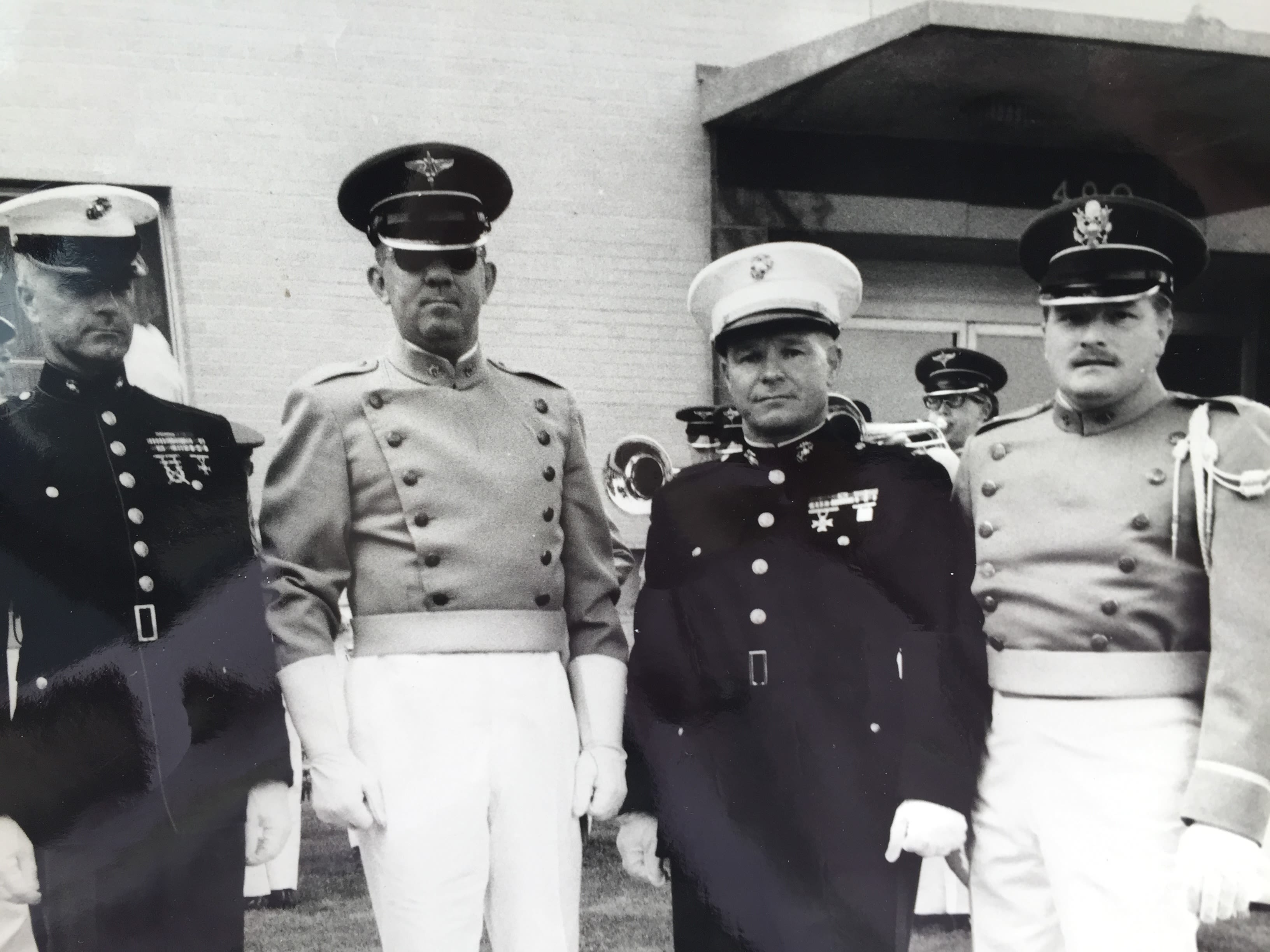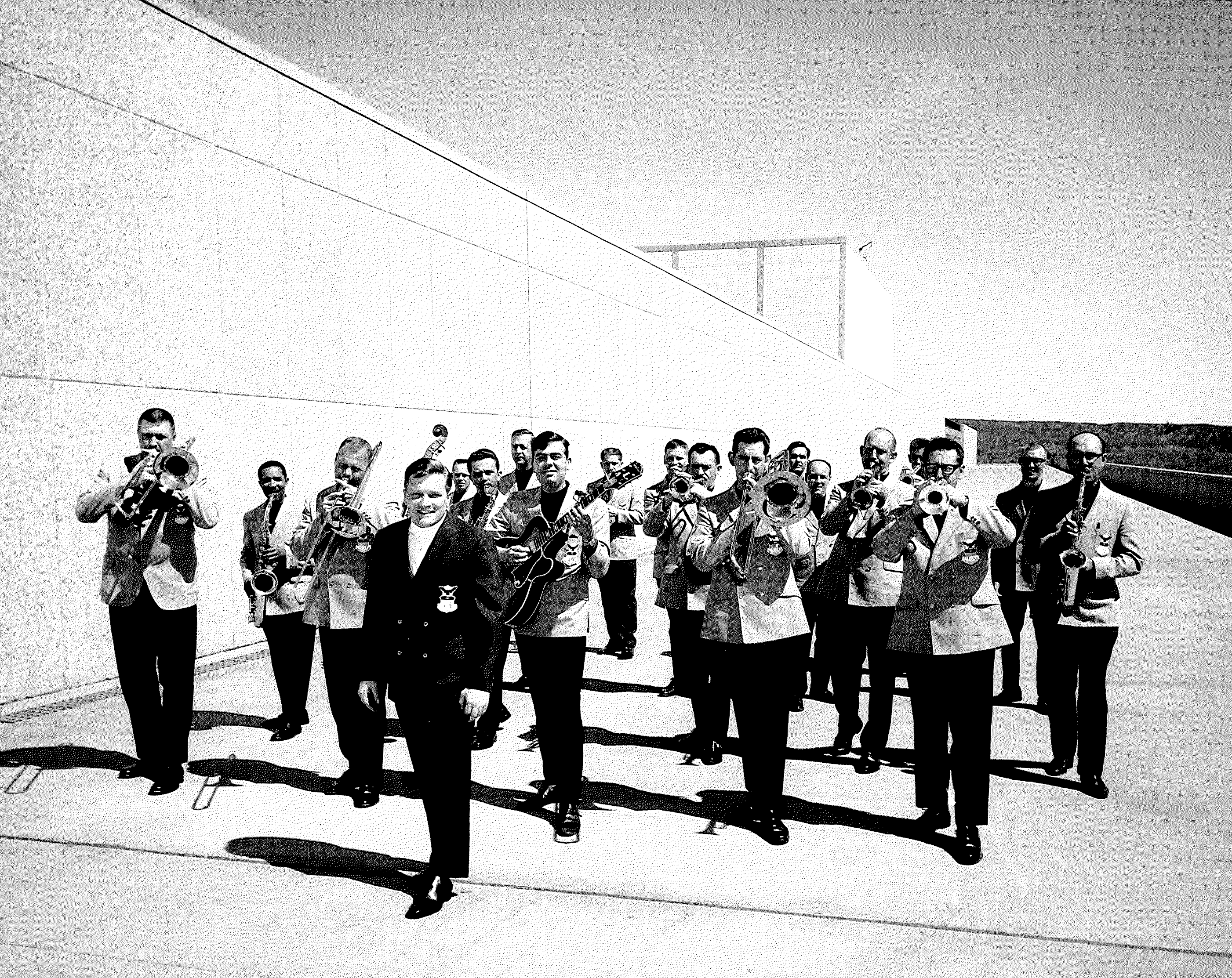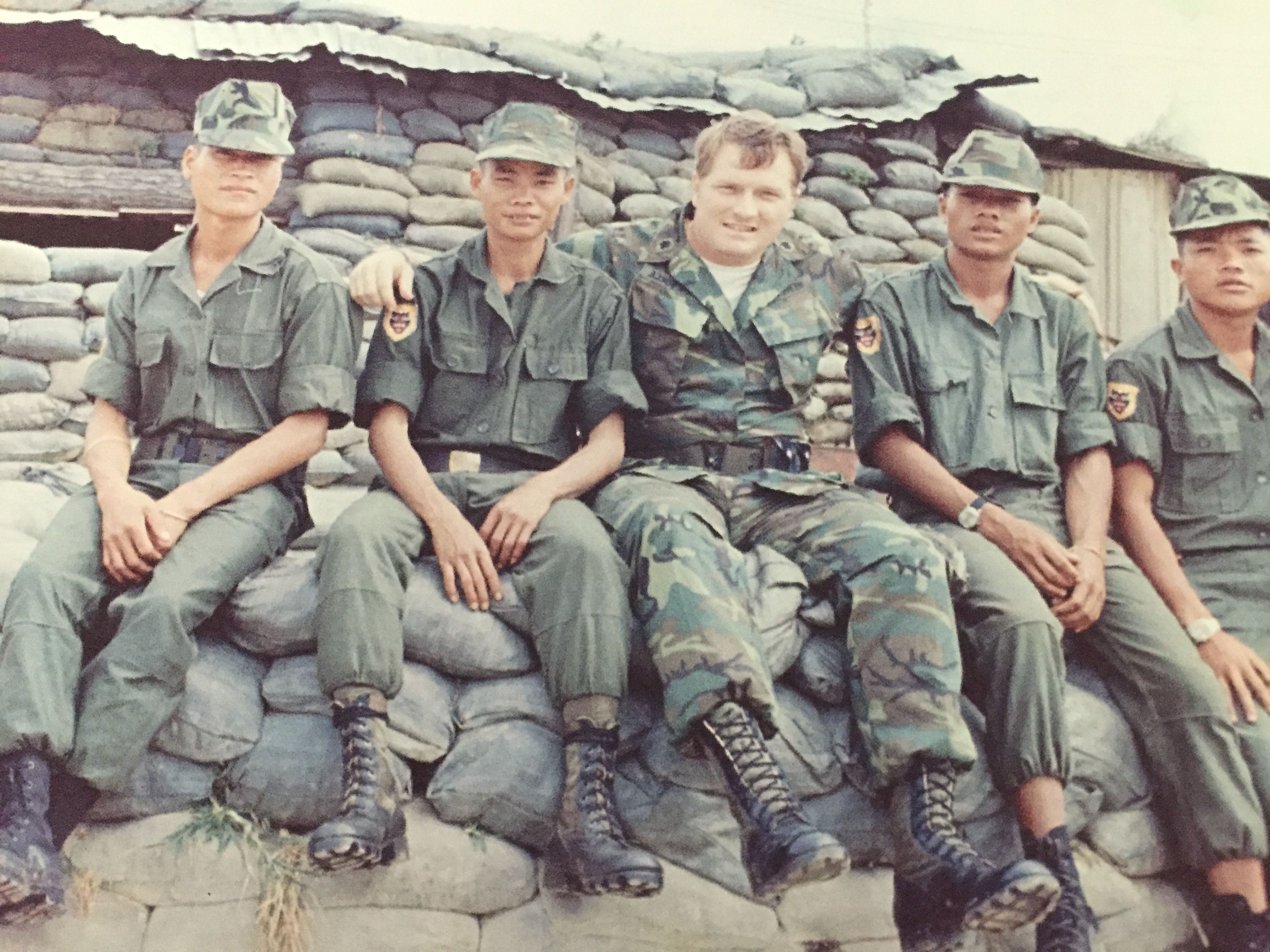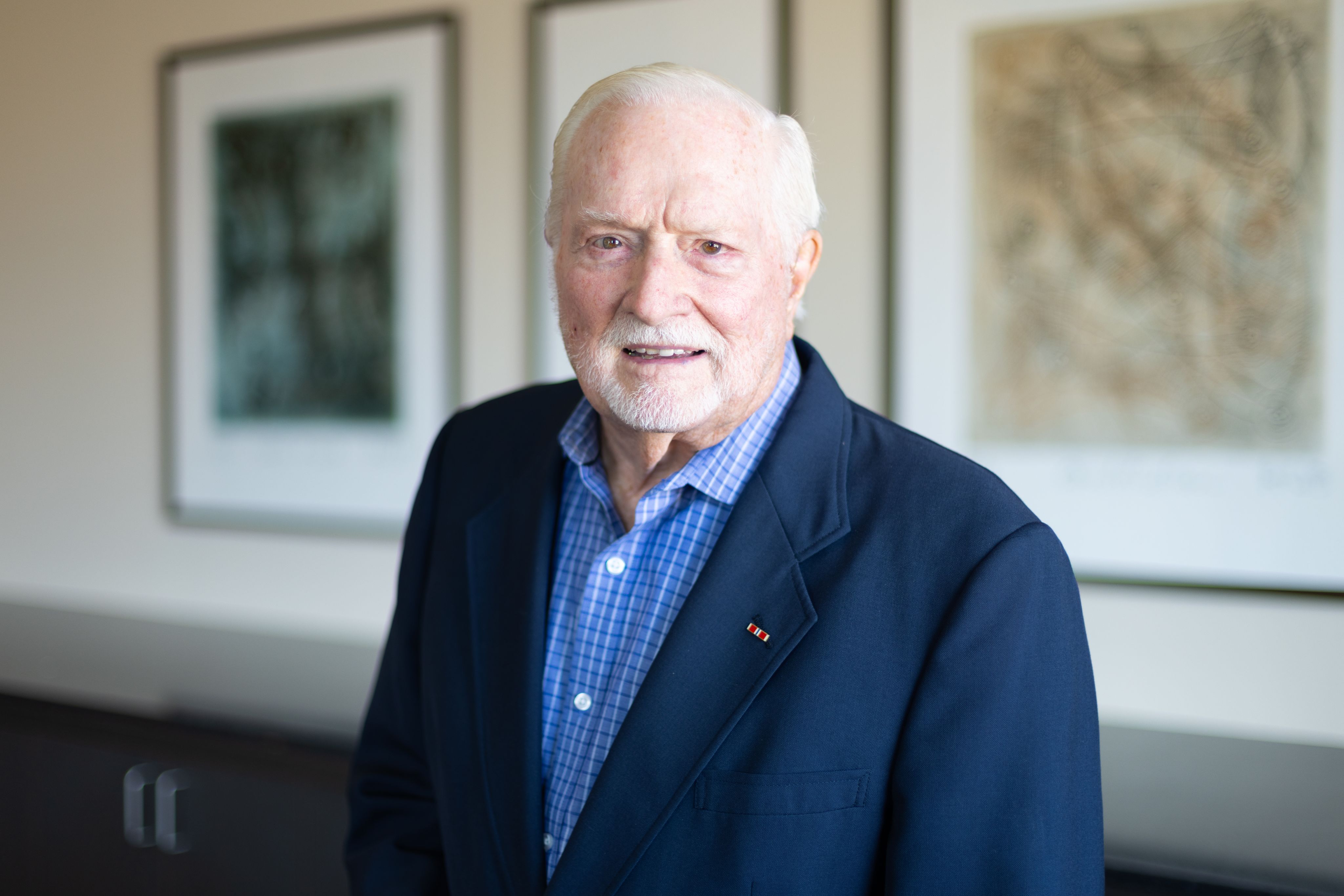Becoming 'The Colonel'
Becoming 'The Colonel'
Moody College professor shares stories from decades-long career in Air Force

The University of Texas at Austin is known as one of the best universities in the country for veterans. With multiple organizations supporting former service officers and an entire office devoted to veteran and military affiliated services, the University gives these non-traditional students the resources and support they need to thrive. Several faculty, staff and students across UT have served in the armed forces, including at the Moody College of Communication. In honor of Veterans Day, we talked to one of them.
When Stan Richards School of Advertising & Public Relations associate professor of practice Terry Hemeyer begins his classes, he asks his students to decide on one name to call him. He says that they can pick anything from “Professor” to “Terry” and even just “Hey, you!” as long as they all address him the same way.
Almost every class lands on “Colonel” — a title he earned after 20 years of service in the Air Force.
Hemeyer joined the Air Force after graduating from college with a degree in music education, having gone through the Reserve Officers' Training Corps program at the same time.
“I was qualified to be a junior high school and high school band leader, but I decided that the Air Force offered a different role for me, and I would try that,” Hemeyer said. “I enlisted for three years, ended up staying for 20, and I’m proud of that.”
Hemeyer’s career in public relations started around the same time. After being stationed in Colorado Springs, he served as a public affairs officer for the Air Force. His first assignment was with the NORAD Tracks Santa — a military program that has shown Santa’s progress throughout Christmas Eve for more than 60 years. Hemeyer helped transition this iconic program from radio to television.
Eight years after enlisting, Hemeyer was called to serve in the Vietnam War while he was studying to get his master’s degree in communications from the Air Force in Denver.
While at first he was hesitant to enter an active war zone, Hemeyer found that Vietnam was a beautiful country filled with great people.
“Where else can you have a career where you live and work in 17 different countries?” Hemeyer said. “We’re talking about learning different cultures, diversity of thought, customs, religions, and more importantly, how did they do the communications that I was trying to do in service of our country?”

The Air Force kept Hemeyer busy while stationed in Vietnam, allowing him to learn everything he could. There wasn’t much else to do; he didn’t get to go home at five or get time off on the weekends.
Hemeyer put his communications degree to good use while abroad. He worked as the managing editor for a biweekly paper, did press briefings for the military in Saigon, hosted VIPs from Washington and gave tours of Vietnam, and traversed the country to find out first-hand what soldiers wanted from their employee communications.
“I was very active,” Hemeyer said. “When I traveled out to all parts of the country, I took my camera, and we did combat photography while we were out there.”
During his stint in Vietnam, Hemeyer forged deep connections with the people he worked alongside and friends he later lost in combat, including a camera person and one of his best friends.
“We got very close to the people we worked with,” Hemeyer said. “I have good friends to this day from Vietnam, and I’m proud to have known all of them.”
Hemeyer also witnessed first-hand the importance of working with people from diverse backgrounds while serving in the military. Learning how to work with people different from him was critical in order to keep people safe under stressful conditions.
“I worked successfully alongside people of different races, ethnicities, religions, cultures and gender, many of whom didn’t want to be there because they were drafted into the military,” Hemeyer said. “Diversity is critical to success in a military war zone.”
“I worked successfully alongside people of different races, ethnicities, religions, cultures and gender, many of whom didn’t want to be there because they were drafted into the military. Diversity is critical to success in a military war zone.”

After returning to the U.S. from Vietnam, Hemeyer stopped over in Denver briefly before moving onto his next assignment in Germany. When he returned to the States, he had to be careful and not wear his uniform in public because of the anti-war sentiment during that era.
“I’m proud that I was able to contribute to our country,” Hemeyer said. “You can argue all day whether the war was right or wrong. At the time, we thought it was right. Maybe later I changed my mind a little bit, but I’m proud of what I did. I served.”
Even after 20 years in the armed forces, Hemeyer found that returning to civilian life was a piece of cake compared to the military. With everything he had been through in his time abroad, nothing in the outside world was all that surprising for him. This mindset and what he learned during his service helped him when he continued his career in public relations outside of the Air Force.
“My time in the armed forces showed me that in PR, you never know what’s going to happen,” Hemeyer said. “There’s a lot of things in journalism or in advertising that surprise you, and in the military, it’s the same way. You were able to deal with stuff pretty quickly and you didn’t have a lot of time to think to do the right thing.”
In 1996, Hemeyer was working in public relations for Pennzoil Co. when the energy company donated media coverage of its historic lawsuit against Texaco, Inc to the Barker Texas History Center at The University of Texas at Austin. That’s how he got connected to the Moody College of Communication. After doing press briefings for the project, a few professors in the college asked if he would be interested in teaching.
“I said I would love to,” Hemeyer said. “I’ve been teaching for 28 years. It’s the highlight of my life, giving back to other people with what I’ve learned.”
Hemeyer now works as a guest lecturer in Moody College, sharing decades worth of PR knowledge, as well as reminding students of all the ways that serving their country can impact them. He proudly sports the Bronze Star — an award for heroic or meritorious achievement or service —for his time in Vietnam.
“I wish that civilians knew that military service can be very valuable to people, especially young people, today,” Hemeyer said. “Young people today are searching for their identity, for things to do. The military offers them another option to do something different.”
“I’m proud that I was able to contribute to our country. You can argue all day whether the war was right or wrong. At the time, we thought it was right. Maybe later I changed my mind a little bit, but I’m proud of what I did. I served.”


